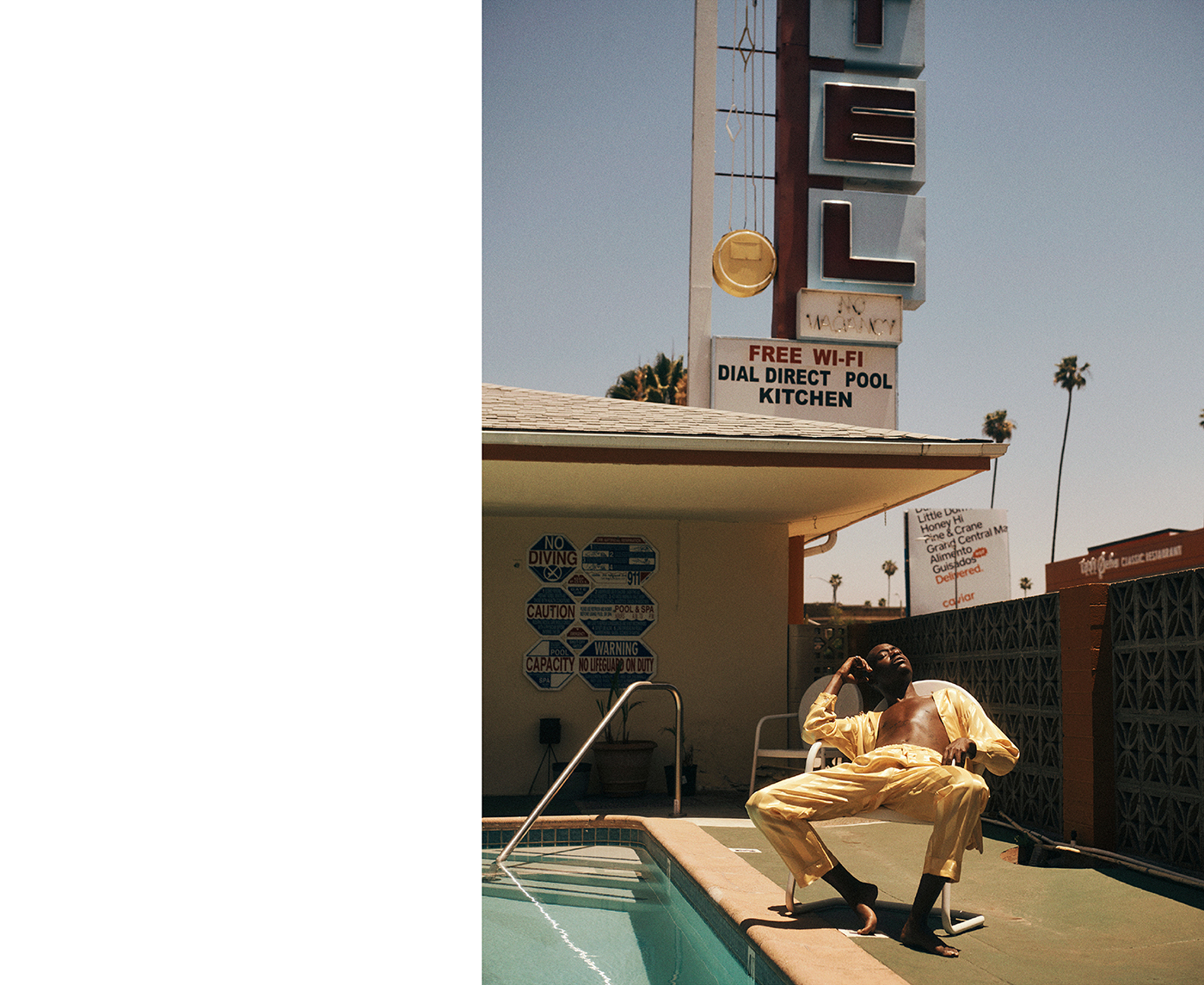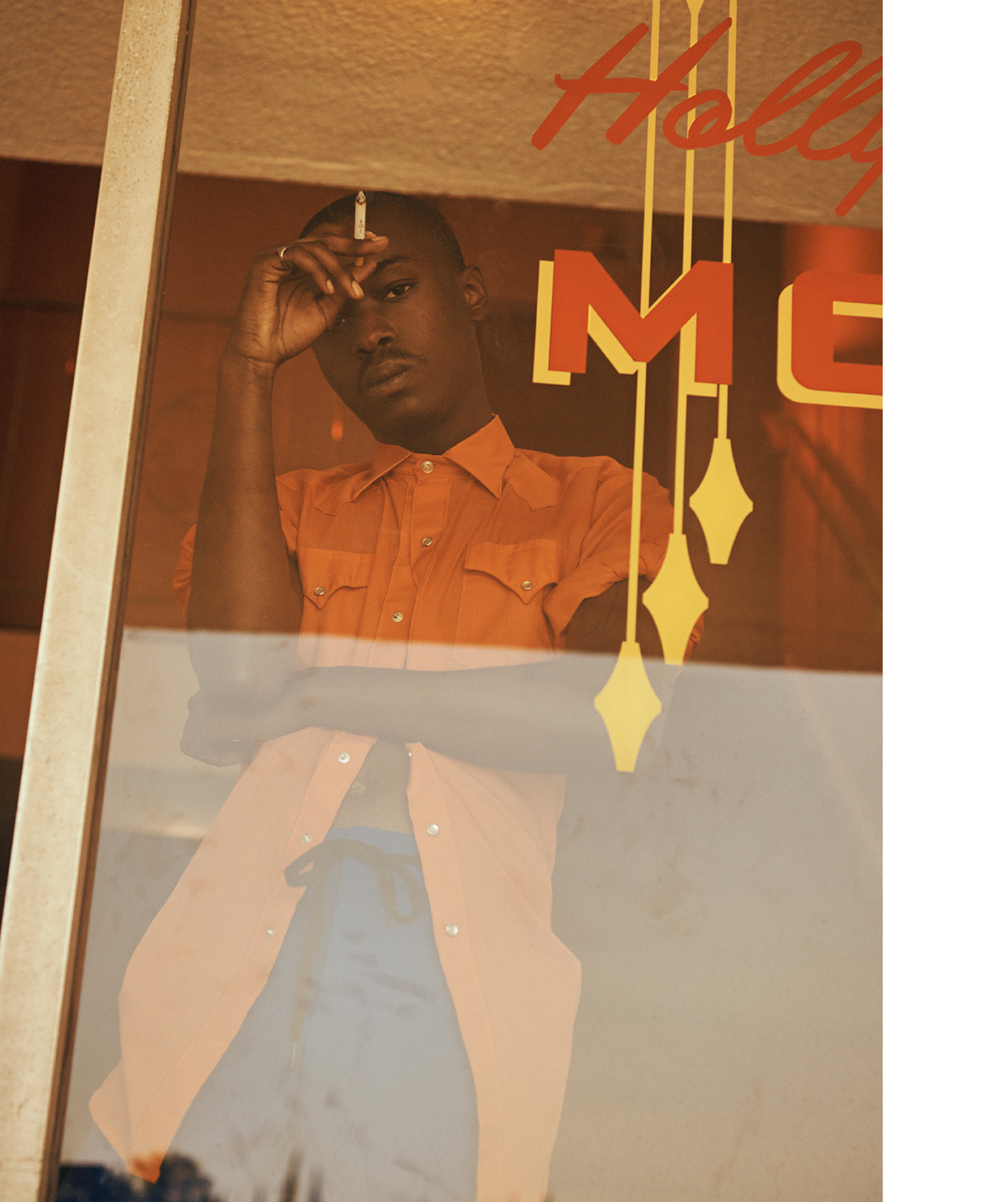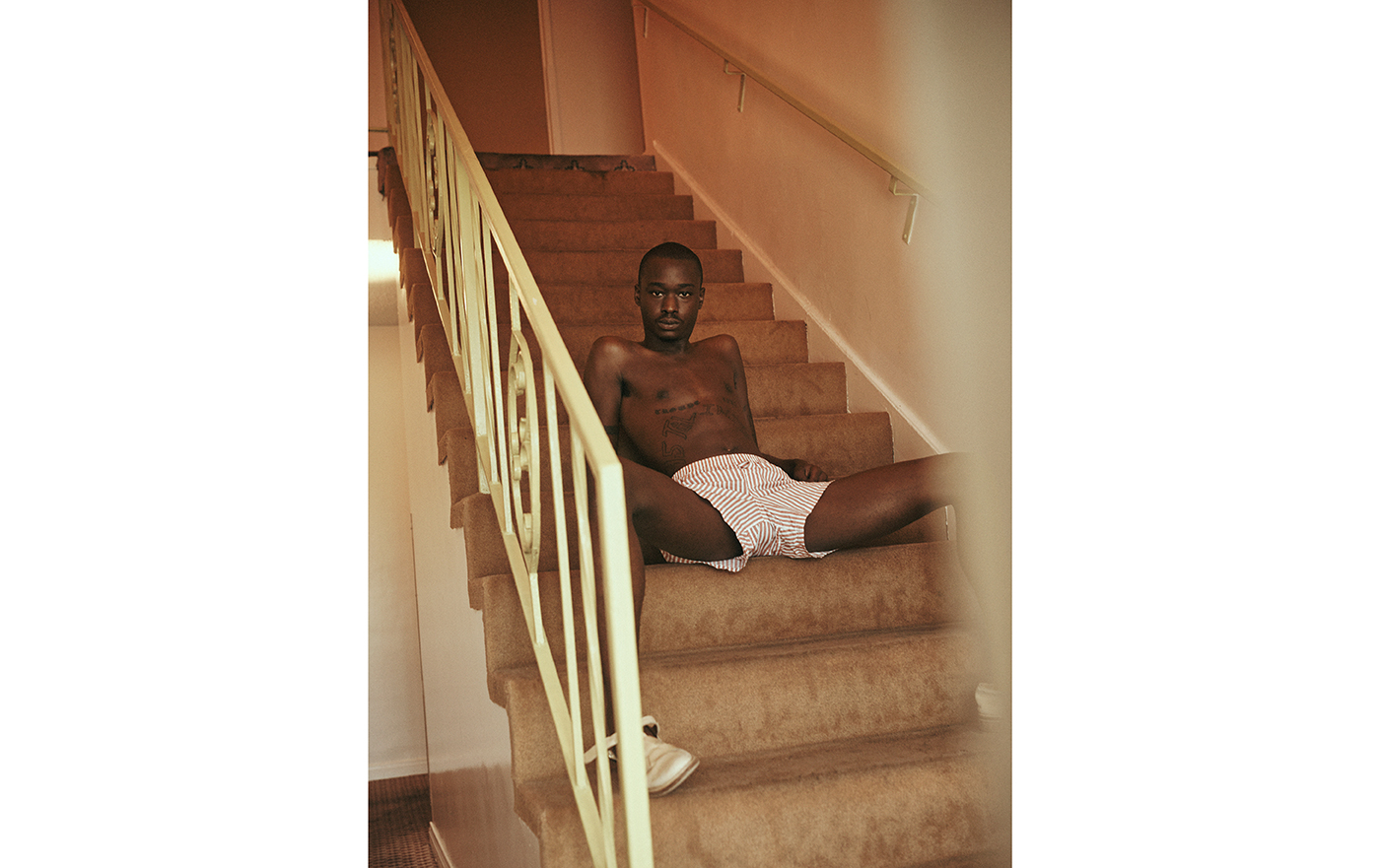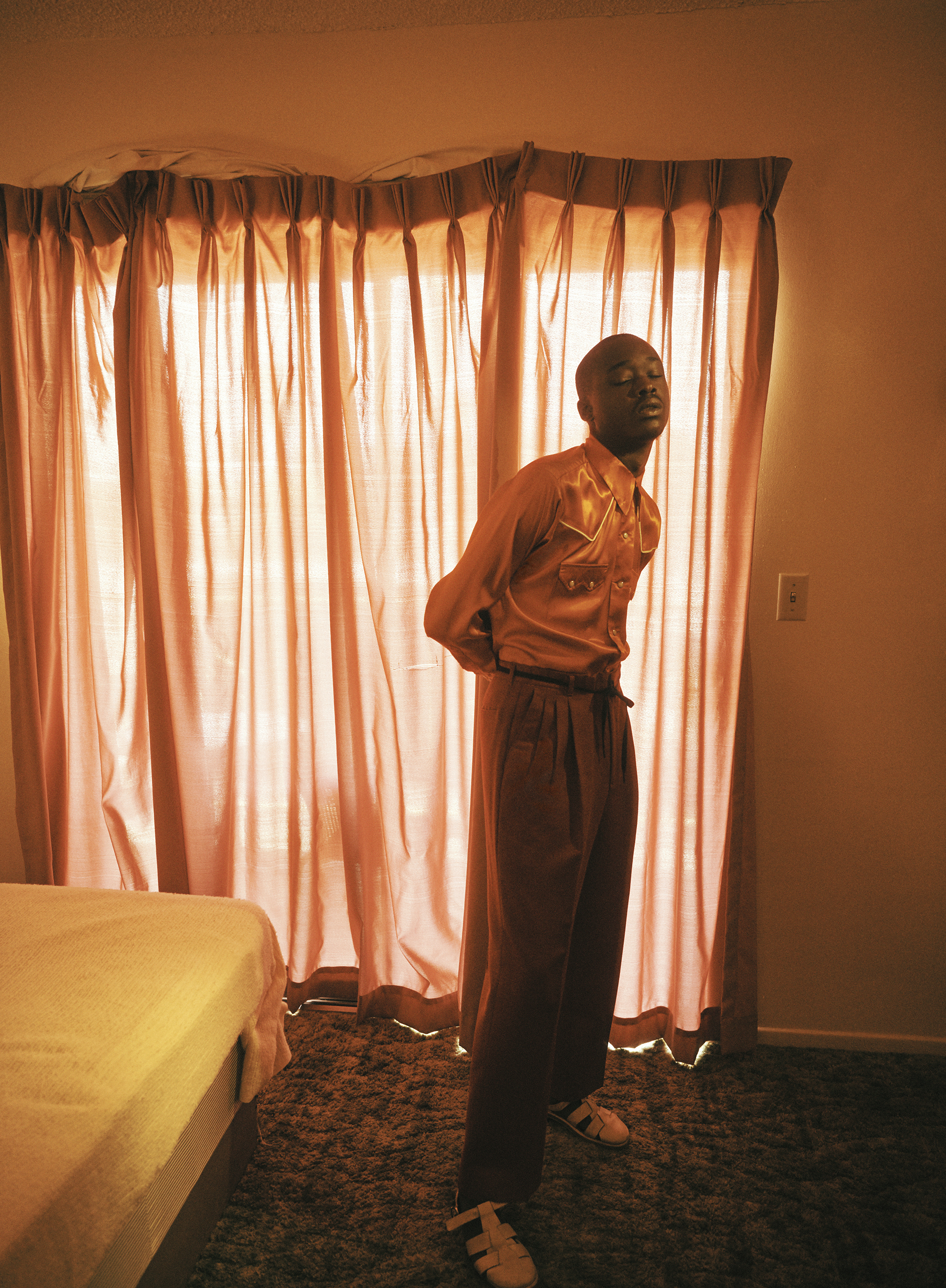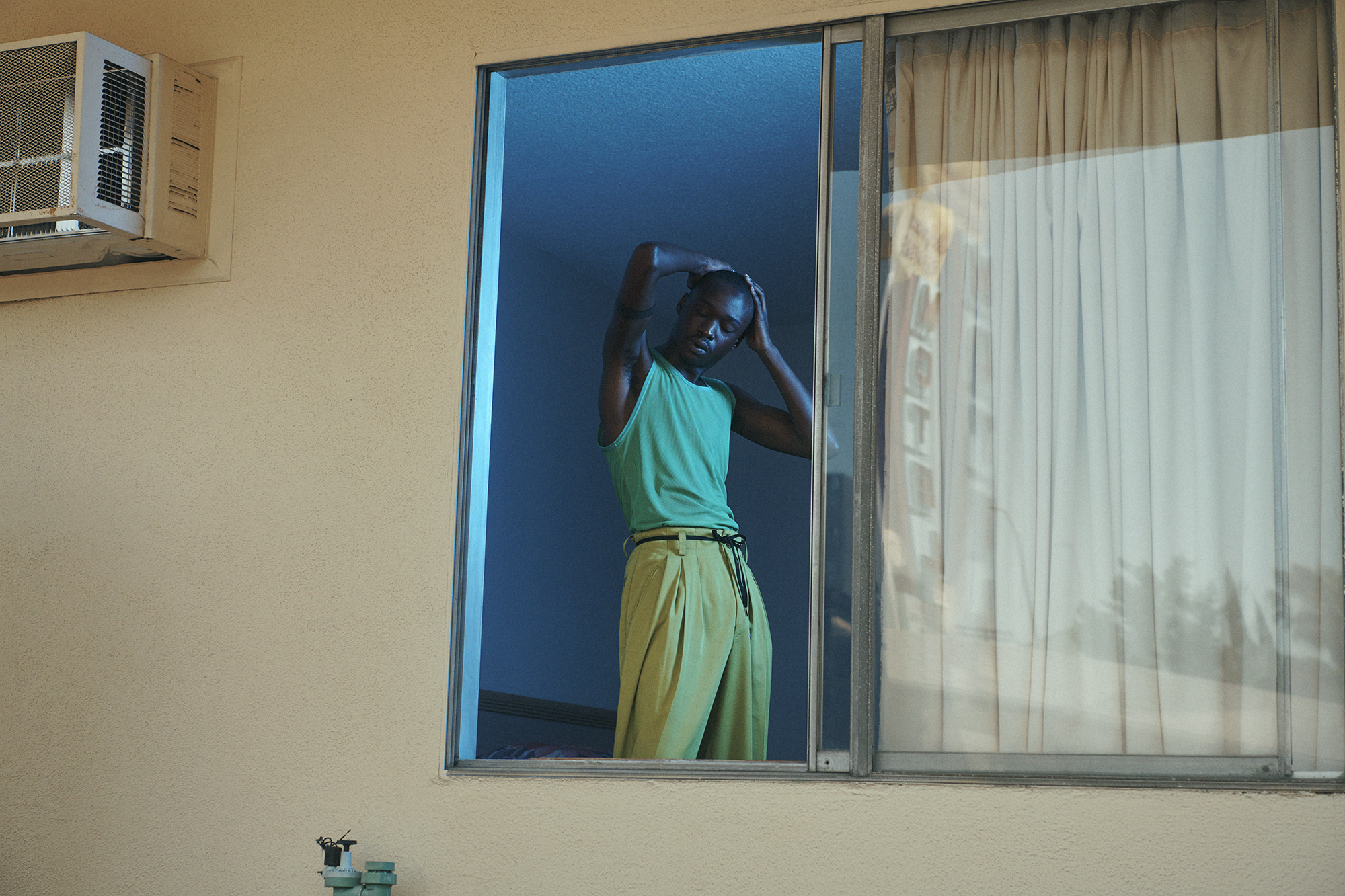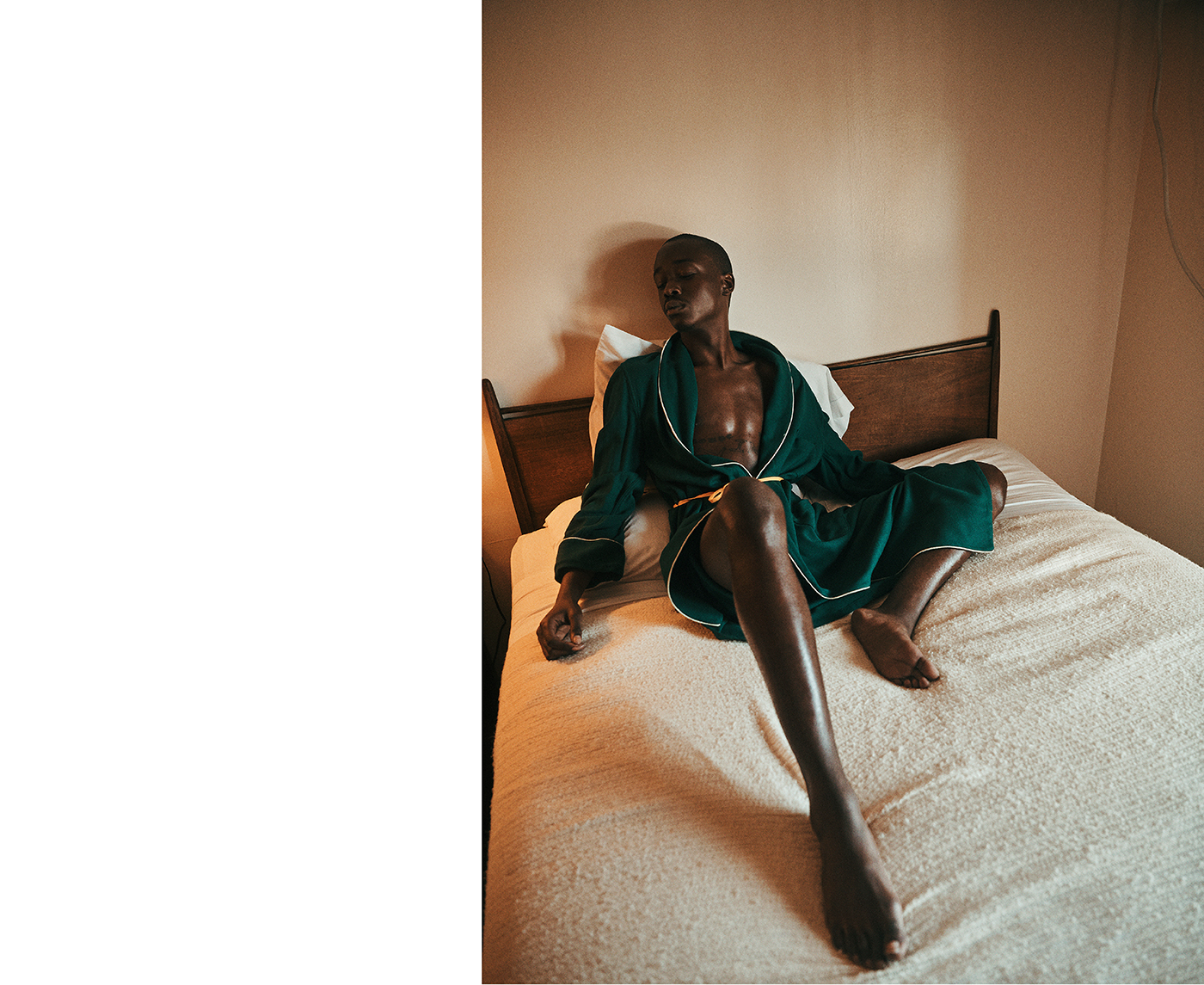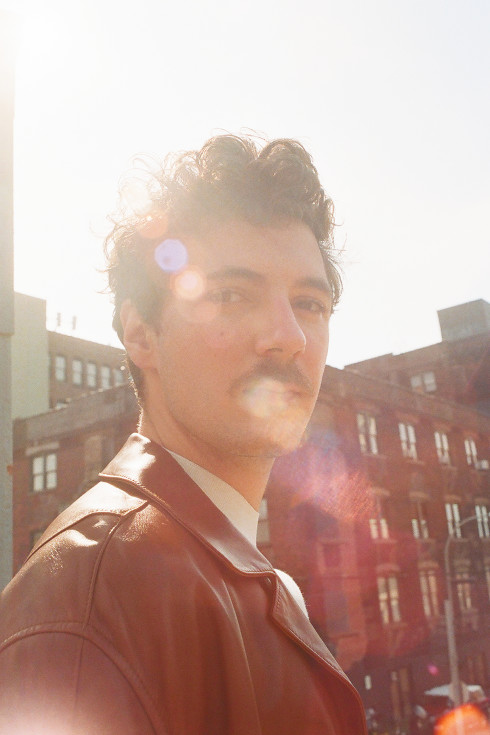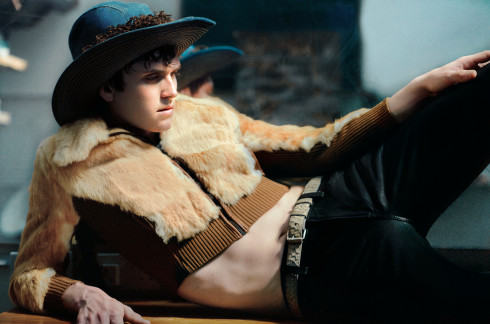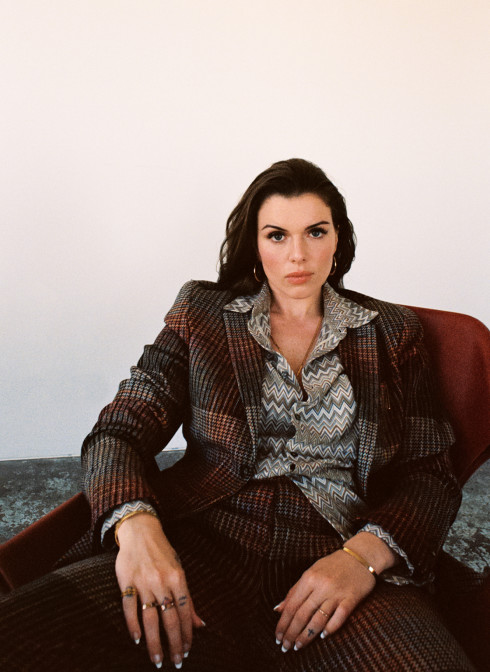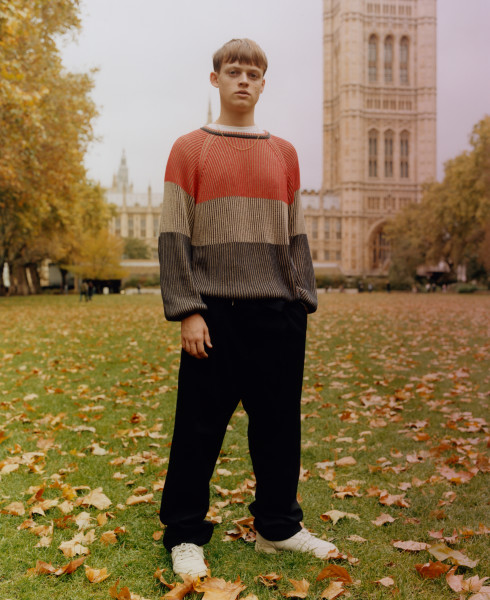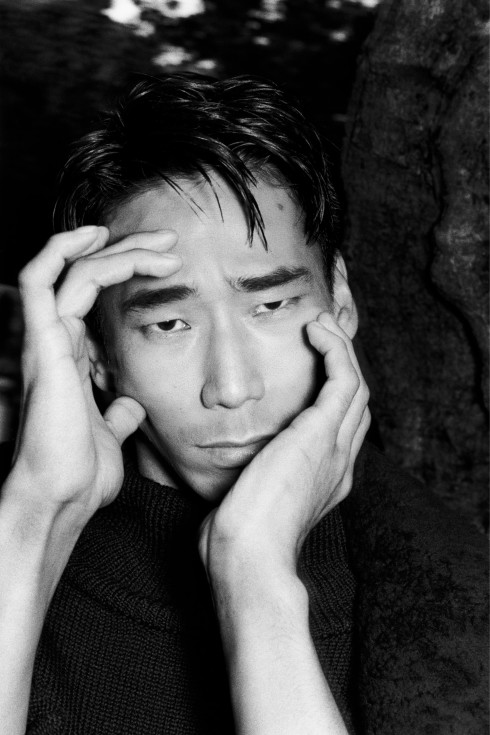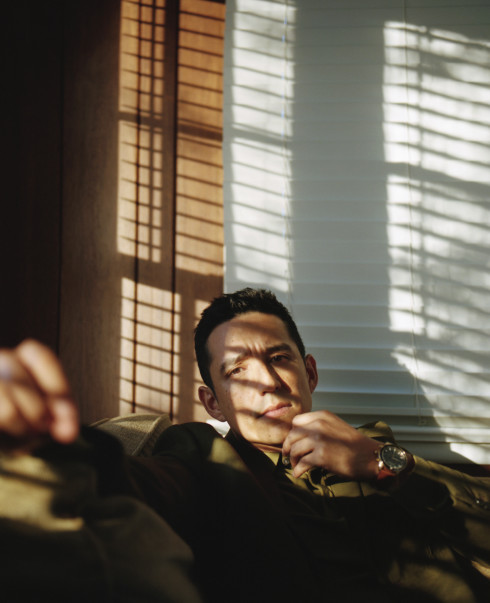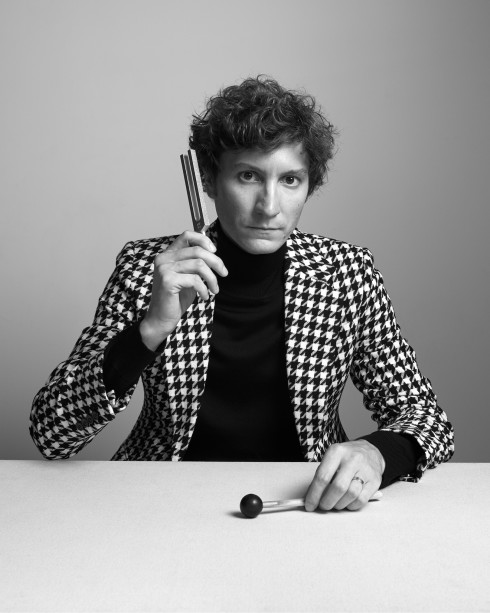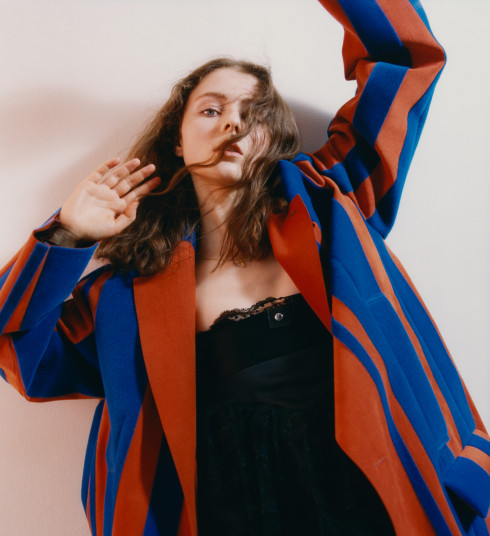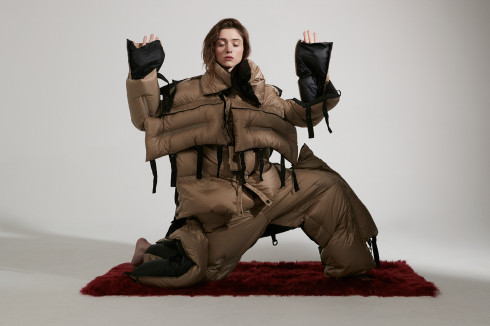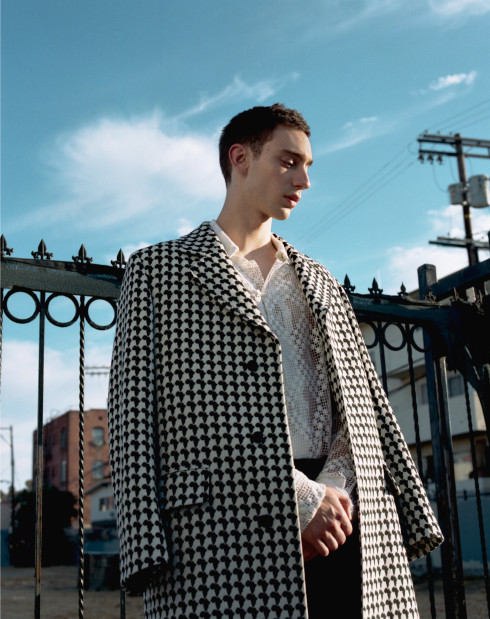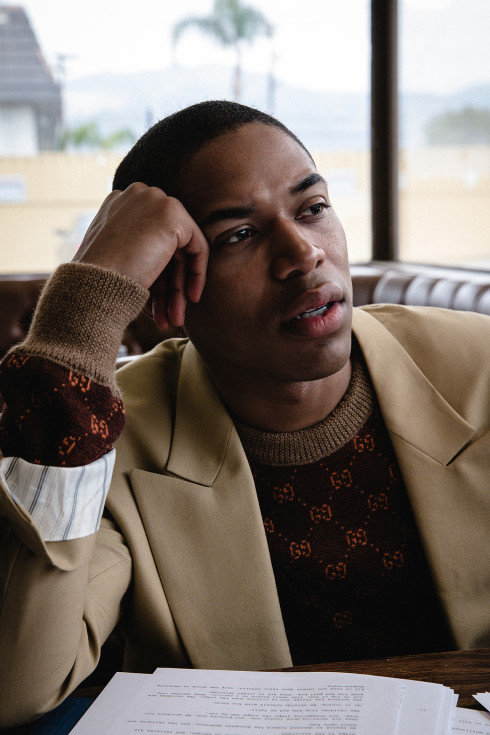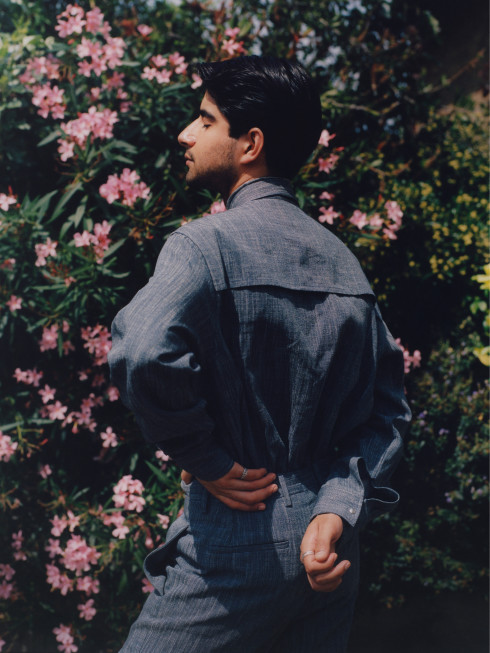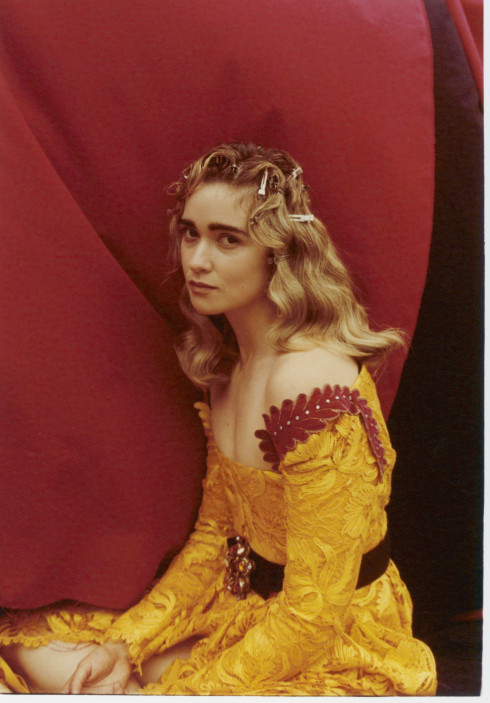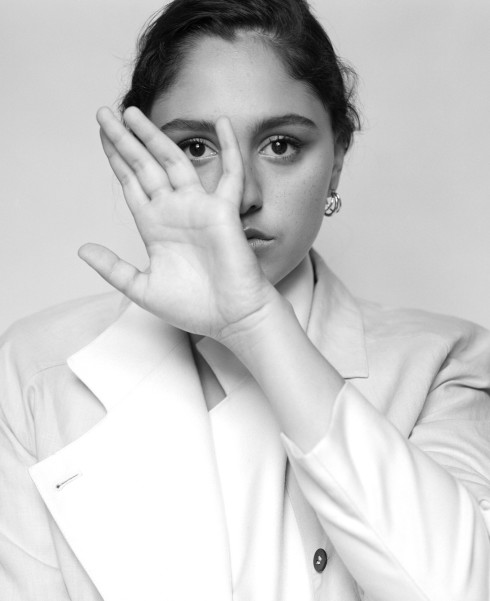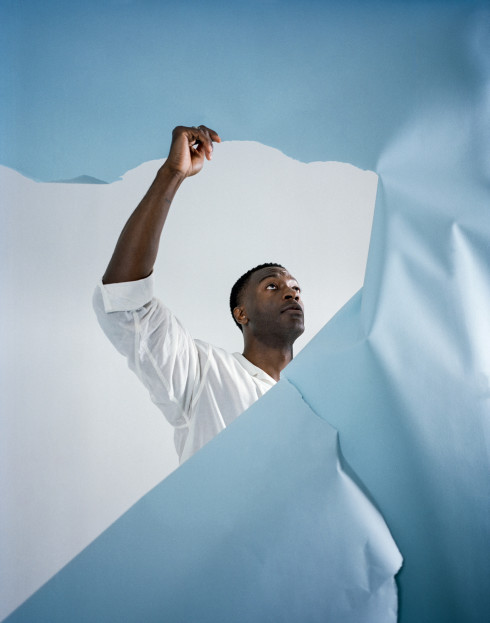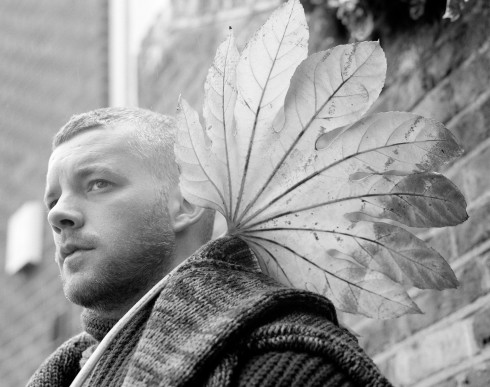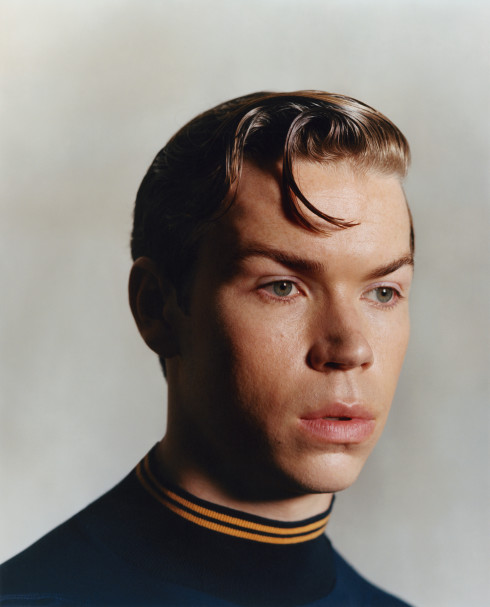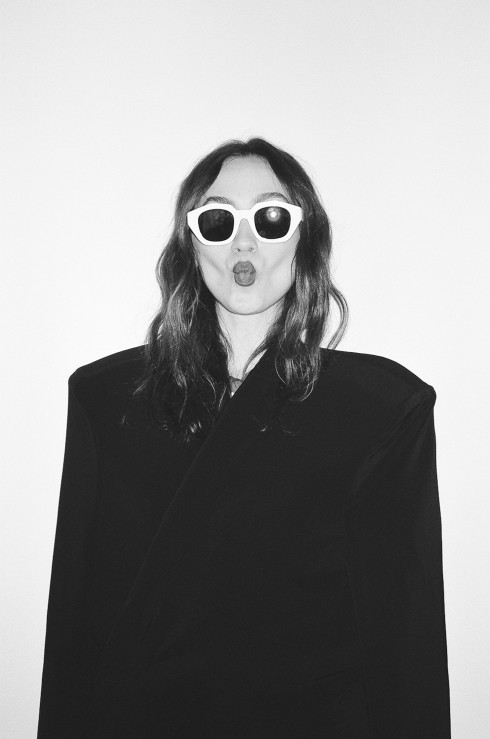
All clothing by CALVIN KLEIN 205W39NYC.
- By
- Jonathan Shia
- Photography by
- Lachlan Bailey
- Styling by
- George Cortina
Grooming by Tasha Brown at Exclusive Artists using Baxter of California. Photographer’s assistants: Jake Merrill and Chad Ofstedahl. Stylist’s assistants: Steven La Fuente and Jake Sammis. Digital technician: Greg Granaghan. Production by Tommy Romersa and Christine Stoeber at Joy Asbury Productions.
ASHTON SANDERS WANTS TO DO EVERYTHING
In his senior year at Grand Arts—the Los Angeles version of New York’s famed LaGuardia High School—Ashton Sanders was asked to make a vision board mapping out where he hoped to be in five years. Dedicated and determined to become an actor, he assembled a collection of his hopes and dreams, crafting an ideal path for himself he was set to pursue. “I never had a backup plan as a career,” he says. “I was always con dent that this was going to work out.” Five years later, he looks back at that high school assignment in slight disbelief: “It’s honestly crazy, almost everything that was on that vision board has happened.”
Indeed, it’s hard to imagine what else Sanders could have envisioned for himself back then that he hasn’t already achieved. As the celebrated breakout star of the Oscar-winning film Moonlight, he has quickly become one of Hollywood’s most respected young talents, with a slate of promising projects on the horizon, including the lead role of Bigger Thomas in the coming adaptation of Richard Wright’s canonical novel Native Son, scheduled to premiere at Sundance in January. Set in Thirties Chicago, the book, often lauded as one of the most important of the twentieth century, examines racism and the confining consequences of poverty from Bigger’s perspective as a poor black man. After taking a job as a chauffeur for a wealthy white family, he accidentally kills the daughter after driving her home on his first night. Pursuit, incarceration, and punishment inevitably follow.
Driven by Bigger’s vigorous internal monologue, Native Son was an instant bestseller upon its publication in 1940, forcing Americans to confront their country’s persistent and harmful racial divide. Nearly eighty years later, many of the same issues explored in the novel persist, as Sanders points out. Adapted by the Pulitzer winner Suzan-Lori Parks and directed by Rashid Johnson, the new film version has been updated to contemporary times to reflect the story’s timelessness. “Plot twist: This is actually taking place in modern-day America,” Sanders says. “Bigger is still the same and the story is still the same, but the Thirties were the Thirties and we’re now in 2018 so obviously Bigger has been shaped to be a different type of dude in response to the world that he lives in, but he is very much one and the same as the soul of the original character.”
Angered by a world that refuses to treat him fairly, Bigger is an intense and complicated character—Sanders calls him “delicate”— originally a deliberate exaggeration by Wright intended to provoke a white audience. “Rashid and I were very particular in how we were creating the character. We wanted to get him right,” Sanders explains. “He’s a human being and a lot of people in the world probably walk around with a similar mindset to Bigger. There’s two sides to him and you can play with that inner monologue that he walks around with that everyone around him is oblivious to. It was very complex, but a lot of fun.”
Brought forward to today, the details and circumstances of Native Son have changed, but the themes remain the same. Bigger’s confrontations with the police are inflected by the backdrop of repeated instances of brutality against African-Americans, and America continues to be a deeply divided country. “I think it’s right on time,” Sanders says of the new adaptation. “The relationship that we as black people have had in America still hasn’t really shifted that much. It’s progressing, but there’s still a lot of the same elephants in the room so it’s still very relatable. It’s the story of how systemic oppression, racism, and prejudice can shape you and shape your world.”
Sanders’s interest in exploring the black experience in America was formed early on. Growing up in the suburbs of Los Angeles, he joined the all-black, community-focused Amazing Grace Conservatory—Insecure’s Issa Rae is a fellow alum—as a budding child actor. “I thought that jumping in and out of character was really fun at a young age,” he recalls. “I didn’t really have a deep perception of it, but I did like the idea of putting on that costume. You just hang yourself up and take somebody else and put that personality type on.”
He credits his time at AGC among “like-minded individuals who looked like me and had the same interests and the same ideas” for shaping him into the actor he has become today. “We live in a society where, as black people, we don’t get a lot of the same opportunities,” he says. “There aren’t a lot of programs that are geared just towards our community and I felt that it was important to have that sense of community while growing my art. Honestly, I don’t know where I would be without AGC.”
After graduating from Grand Arts, Sanders enrolled in the theater program at Chicago’s DePaul University. The summer after his junior year, he was sent the notice for Moonlight, a three-part coming-of-age story about a young gay black man in Miami. Given little information before his auditions to play the lead character Chiron in his teenage years, he recalls being powerfully moved when he finally received the script by Tarrell Alvin McCraney, who adapted his own play In Moonlight Black Boys Look Blue. “It was one of the most emotional reactions I’ve had to a script,” Sanders recalls. “It was such a human experience. I read that script and was able to feel and visually see the world that Chiron was living in. I grew up in a society that’s kind of the same landscape as how Tarrell was brought up, so that role was an extension of myself. I feel like everybody involved related to the script in some personal way.”
Sanders’s connection to McCraney’s story was perhaps even closer than that of most of his fellow cast members. He recalls being bullied as an artistic teenager and feeling at times that same sort of solitude Chiron experiences. “I was able to pull from my life,” he explains. “I was able to reach back into my memories and pull out certain emotions that I had hidden or that I had tried to push aside. I think Chiron made me confront a lot of my demons, which was interesting.” Sanders has often described filming Moonlight as “therapy” and, given the depth of his introspection, it’s not hard to understand why he calls acting an “extension of psychology or sociology.”
Moonlight arrived in October 2016 to nearly universal approval, championed as the rare film to highlight the gay black male experience. The film’s cast—also including Alex R. Hibbert and Trevante Rhodes as the younger and older Chiron, Naomie Harris, Janelle Monáe, and eventual Oscar winner Mahershala Ali—became red carpet staples that awards season as the movie picked up a slew of awards, including a Golden Globe, en route to winning the Oscar for Best Picture after a memorable mixup. Sanders, tall and lanky, was often dressed in Calvin Klein, having appeared alongside Hibbert and Rhodes in a campaign for the brand overseen by the then-freshly-appointed creative director Raf Simons. For a lifelong fan of fashion—Sanders’s father was a designer—the connection was thrilling. “I think that fashion is an extension of yourself,” he says. “It’s an art form in itself. It was a legendary moment in fashion with Raf Simons being at Calvin Klein for the first time and it was a legendary moment in cinema with everything going on with the film, so it was definitely a whirlwind.”
Since then, Sanders has kept himself busy with a range of projects, from The Equalizer 2 opposite Denzel Washington this past summer to the death-row drama Dead Women Walking and even appearances in music videos by the xx and Chloe x Halle. He recently finished filming All Day and a Night, the directorial début from Black Panther co-writer Joe Robert Cole, in which he plays a criminal recently arrived in prison, and will also be seen in the sci-fi thriller Captive State next year. As his previous vision board reaches its expiration date, it might be time for him to make a new one, although deciding what to leave off might be even tougher than last time. “At this point, I feel like I have everything and I can almost do anything and everything,” he enthuses, “and that’s what I want to do.”
- By
- Jonathan Shia
- Photography by
- Lachlan Bailey
- Styling by
- George Cortina
Grooming by Tasha Brown at Exclusive Artists using Baxter of California. Photographer’s assistants: Jake Merrill and Chad Ofstedahl. Stylist’s assistants: Steven La Fuente and Jake Sammis. Digital technician: Greg Granaghan. Production by Tommy Romersa and Christine Stoeber at Joy Asbury Productions.
